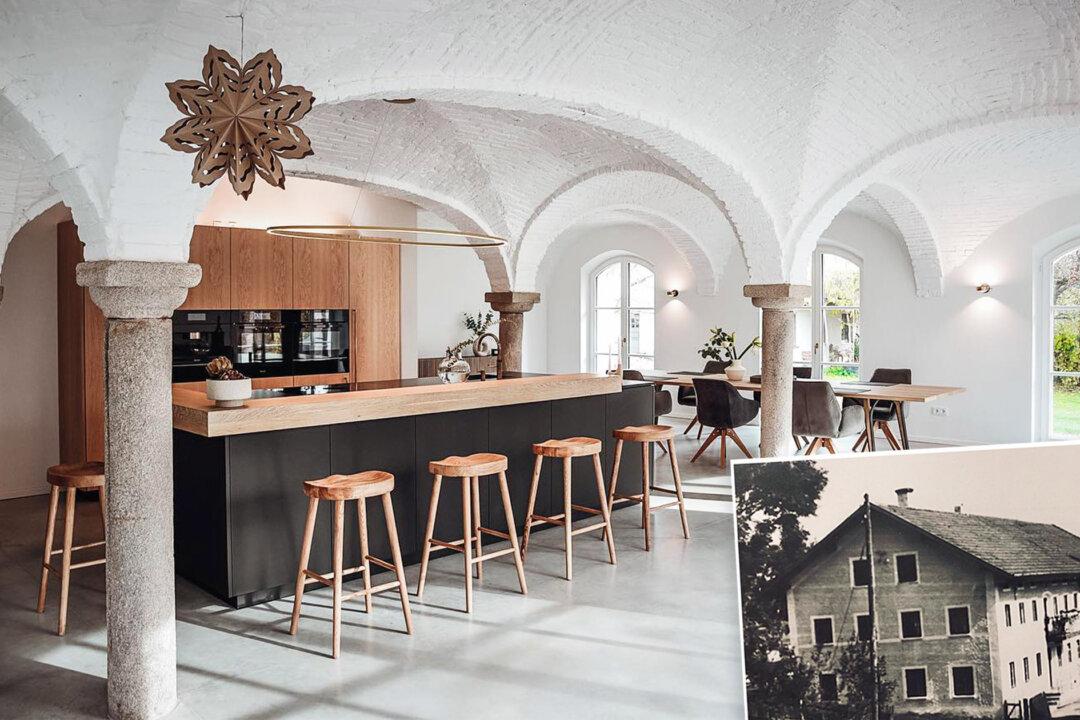A young couple with a growing family near Munich, Germany, were inspired to undertake an epic home renovation by a huge empty farmhouse owned by their family since the 17th century. The project grew far larger than they had anticipated, but now, four years later, they have created a masterpiece they can proudly call home.
The renovation was the brainchild of Sabrina Schmidpeter, 31, a business psychologist and flight attendant for an international airline, and her husband, a 38-year-old management consultant in Big Tech. The couple have a 3-year-old child together.





